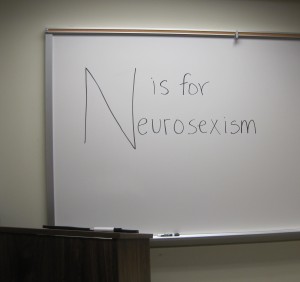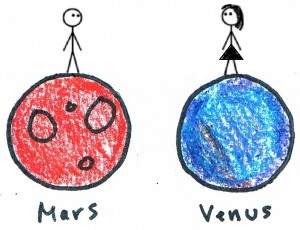Cross-posted from the Neuroethics Blog
At the beginning of August, Ruth Padawer published a piece in the New York Times magazine about gender non-conforming children and parents. Last week, Dr. Larry Young of Emory University and science writer Brian Alexander (who are publishing a book together, The Chemistry Between Us) published a response to the article, in which they argue, essentially, that gender is biologically hardwired into the brains of fetuses by the organizational effects of hormones. They go on to implicitly endorse what has been called the “brain sex theory” of transgender identity/behavior. According to this theory, hormones organize the sex/gender of the brain much later than they organize the sex/gender of the genitals, allowing for a discordance to develop between the two (Bao 2011).
Admirably, Young and Alexander use the brain sex theory to argue for an acceptance of gender non-conforming children. They write, “so rather than seeing threat, we should embrace all shades of gender, whether snips and snails, sugar and spice, or somewhere in between.” However, there are (at least) four major problems with their argument: they essentialize gender; they uncritically embrace human brain organization theory; they uncritically embrace the double-edged sword of essentialism on behalf of transgender people; and they selectively (mis)use evidence about intersex and transgender people to support an ideological claim about the innateness of gender differences.
Continue reading






